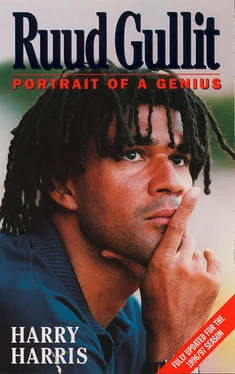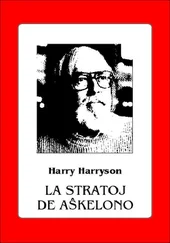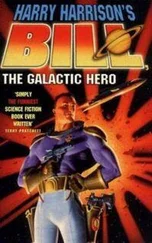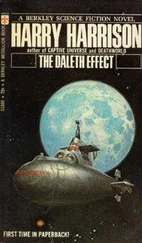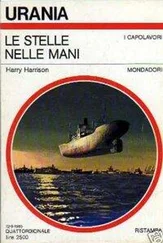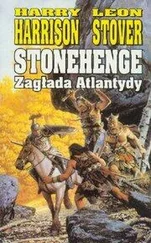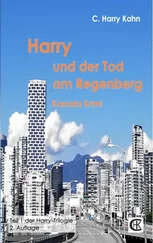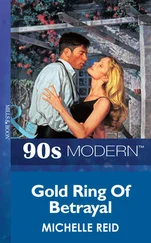âAnother was about a new cure for Parkinsonâs disease. I was watching this guy with his flailing arms and the surgeon drilling into his brain. You see the result, he is able to control himself and walk, and that is really something special. Things like this are the real world. You compare all this with what is happening to you. You can learn a lot about it. Football is part of life, but it is entertainment. There are other, more important things. These documentaries give you other aspects of life, something special, something emotional. Football doesnât rule my life.â
It was a remarkable insight into Ruudâs perspective of life, as he was willing to talk endlessly about his innermost feelings when he watched those documentaries. He seemed less inclined to open up about his football!
The 1995/96 Premiership season kicked off with a fascinating portrait of Gullit in The Times by their chief soccer writer Rob Hughes. He wrote: âIn many ways, Gullit is the symbol of what is happening to the English game in this hot, lazy, crazy summer. We are no longer buying cheap imports from eastern Europe, but men of character, status, achievement.â
However, The Times article posed pointed questions about Gullitâs fitness, and desire. âDoes he arrive here too late, and diminished after the fearful injuries to his knees, the two failed marriages so ruthlessly exposed by the paparazzi?â
Gullit answered this straight away with an impeccable debut in the Premiership and with it the promise of real success for Chelsea after such a long wait. Goals were hard to come by at the start of the season for the Blues, but Gullit was their most effective player â in defence, midfield and attack!
Hoddle is convinced that Ruud can continue to play in the top flight. He has already seen enough to suggest that Gullit is as fit as ever. He says: âThere is no reason why he cannot go on until he is 37 or 38. Some people have been surprised by how fit he is, but I am not. I wouldnât have bought him if I hadnât done my homework. He is a real professional and looks after his body. Only people who love the game can play until that age. He knows that when he hangs up his boots he can abuse his body all he wants then. But while he loves the game and looks after himself, he has the vision to play on for years to come.â
Gullit adapted quickly to the contrast in philosophies from Italian football. So quickly that any thought of a culture shock was instantly dismissed. While he praises the game over here for a variety of reasons, he is critical of standards of the English game in Europe and world football. âThe Italian game is based on winning. How you win is unimportant. Here, the game is far more open and exciting and people all over the world love to watch it. But you donât win anything. The records show that and it was proved again last season. I love the game in England, but its future depends on the coaches. They have to make a choice.â
In his first season in English football, the prominent club sides failed miserably in Europe. Yet again the English League champions had failed to get past the first stage of the Champions League. Gullit observed: âSince Iâve been here Iâve seen some good teams, but Iâm surprised they still struggle in Europe. Sometimes they forget that teams are like cars, they have five gears, but some teams play in fourth and fifth gear all the time. You need to start off in first gear to get things moving. Liverpool can play in different gears. In Europe you have to learn patience. The English game is fast, the idea is to play the ball as quickly as possible into the box. In Europe, they play another game and English clubs may need to adapt themselves. And that will require more training and thinking about tactics.â
After a virtuoso performance at Loftus Road, as Chelsea beat QPR in the fourth round of the FA Cup, Gullit wandered into the Press Room where he gave another insight into his footballing philosophy. He revealed that he could see the transformation at the Bridge taking shape. âAll credit to Glenn for this, he wants to try and play football the way it should be played. The crowd are beginning to appreciate this keep-ball. At first, they would boo if you sent the ball backwards, but sometimes it had to go backwards to find areas to go forwards. We have to depend on our skills, but we can improve still further. We have to be more clinical and weâve not got that yet. To reach the top of our capabilities we have to be more clinical in front of goal, but it is good that we are learning what we have been doing wrong.â
In the vital Cup tie at QPR, Hoddle turned to Gullit as his captain for the first time in the absence of the suspended Dennis Wise. Gullit said: âThat was an honour on for me. The gaffer came to me and said, âI want to make you captain.â I said OK.â The soccer cliché âgafferâ seemed to come naturally to Gullit, who was totally integrated with his team-mates. He said: âI was never made captain in all my time in Milan. Never.â
Ruud is also active in pro-environmental campaigns. He has been involved with plenty of environmental issues during his years but dismisses the idea that he may one day go into politics. âYou have people without scruples in politics,â he said. âThey go with the wind. But itâs not just politicians who are responsible for the world. It is all of us. You know, football is a game of 90 minutes. When it is over you return to the real life. There are many things in life other than football.â
Whatever the future holds, for the present Ruud Gullit is captivating fans and pundits alike. Anyone privileged to be in his company for an interview cannot help but come away with a warm inner glow. At last, we have a player without a chip on his shoulder, a diabolical disciplinary record, or the inability to express himself.
Clive White, in an article for the Sunday Telegraph , observed: âA few minutes spent in Gullitâs company is enough to make one realise that here is a man in pursuit of excellence, whether it be for the betterment of himself or his team, rather than some monetary goal.â
Gullitâs stature and class have never been questioned. And, once he established his commitment to English football, and produced near perfect performances in virtually every game in which he played for Chelsea, some of the more respected pundits began to warm to him even more.
Brian Glanville, in his analysis of the glut of foreign players, wrote in the Sunday People: âSupreme among them all of course is Ruud Gullit, even if his age and those knee operations mean you canât expect him to run around for 90 minutes. But Gullit is so much more than a schemer â heâs âtotal footballâ personified. Sweeper, striker, midfielder: call him what you will. What he proves, game by game, is that a player with high technique and real imagination is worth his weight in gold.â
However, Gullit doesnât consider himself to be a foreigner. âIâm not a foreigner,â he says. âIâm a world traveller.â
CHAPTER TWO
Rebuilding the Bridge
It was a decision from the heart. Thatâs how Ruud described his reason for leaving Italy for Stamford Bridge. Money was not the motivating factor. A multi-millionaire in his own right, there were even greater fortunes on offer to ply his still considerable talents in Japan, France and Turkey. Instead he chose one last glory trail in the Premiership, pledging that his knees were no longer a problem, the rest of his body was in sublime condition and that he was ready for the physical conflict.
Читать дальше
